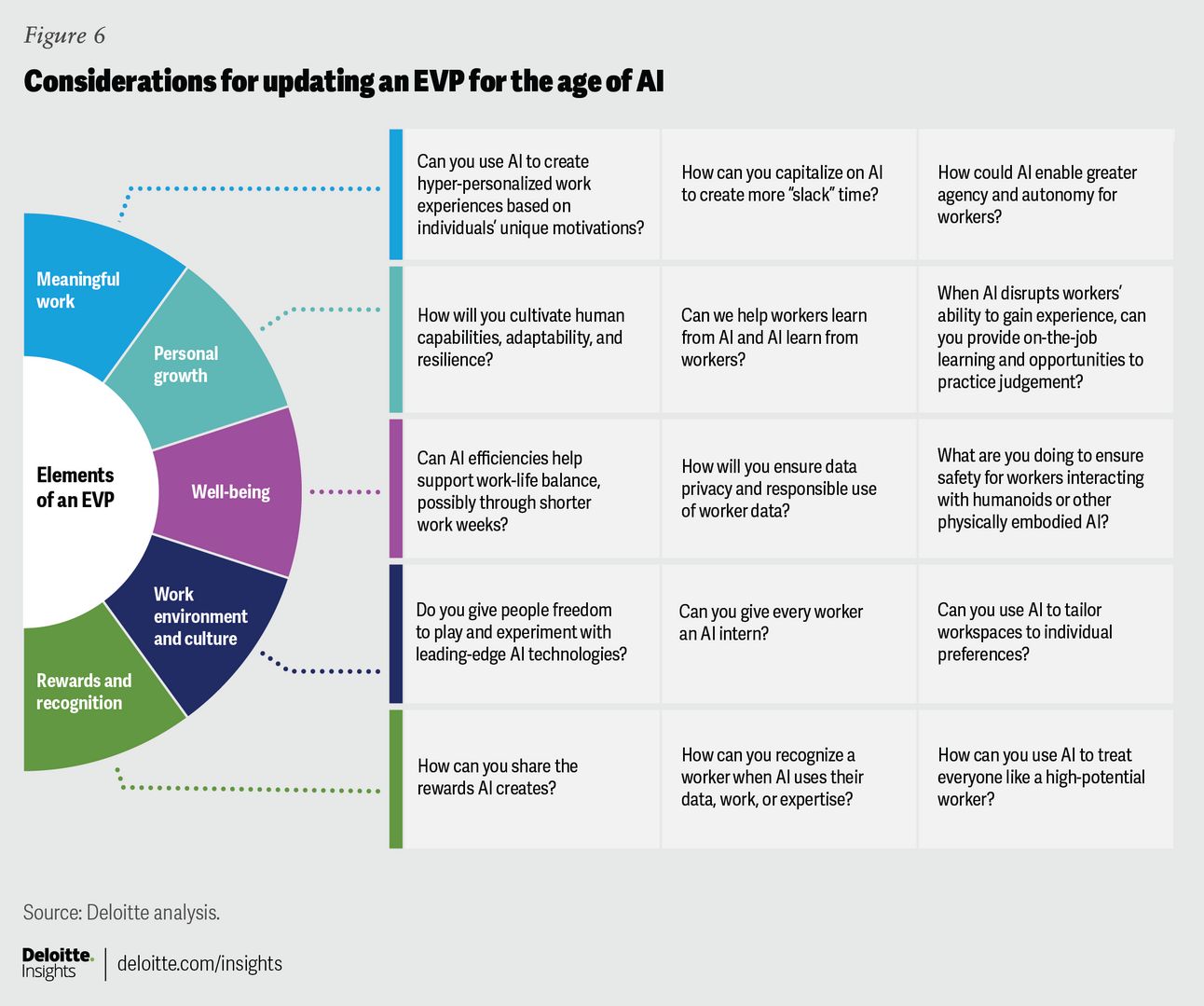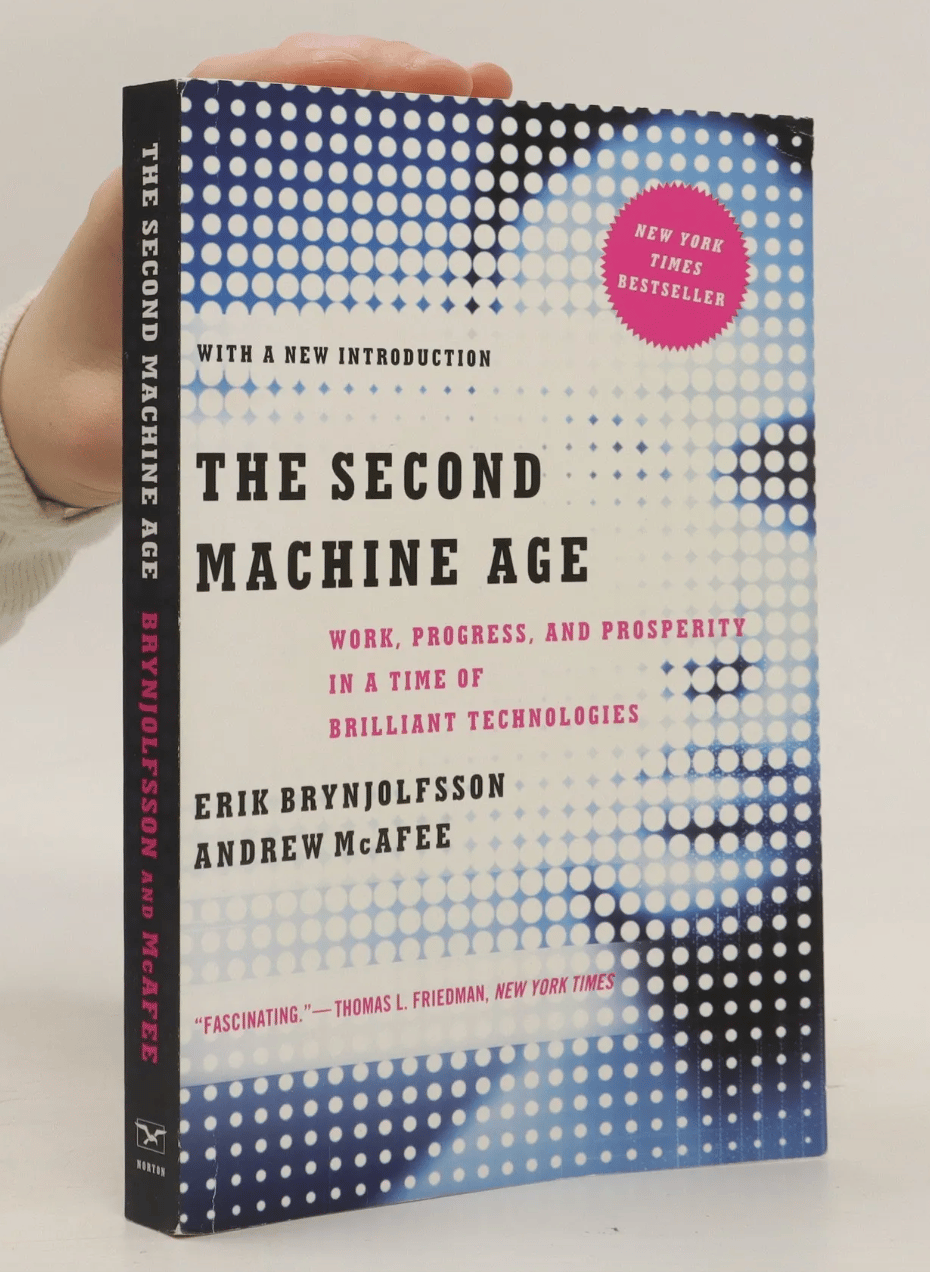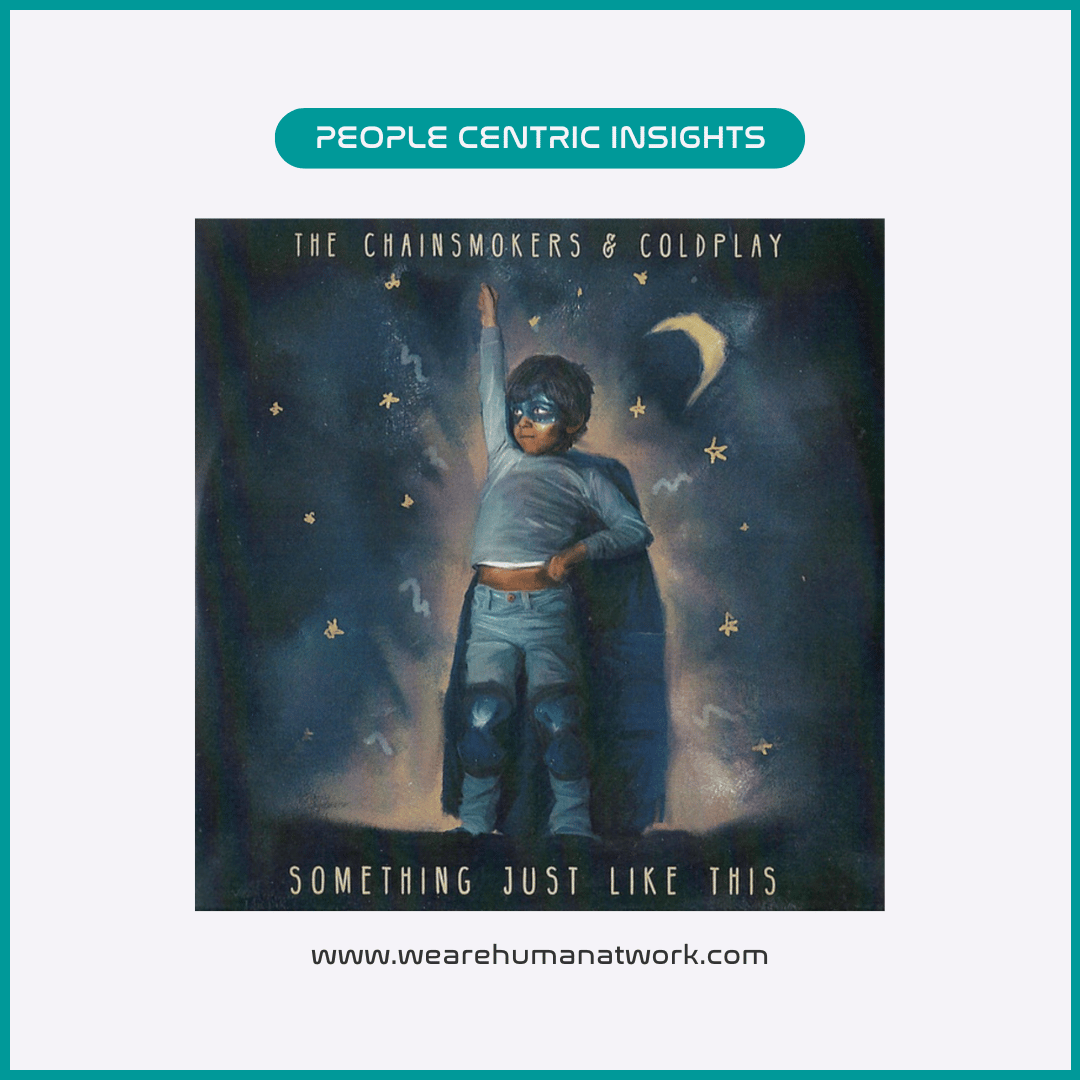- WeAreHuman@Work
- Posts
- WeAreHuman@Work | #023 | AI Is Moving Fast. Is Your EVP Falling Behind?
WeAreHuman@Work | #023 | AI Is Moving Fast. Is Your EVP Falling Behind?
WeAreHuman@Work is a newsletter dedicated to fostering a more sustainable world of work.
THIS WEEK'S CONTENT
Deloitte’s 2025 Global Human Capital Trends report is here—one of my favourite annual reads.
Over the next eight weeks, I’ll break down each trend into actionable insights for leaders navigating uncertainty and transformation.
This week: Trend #3: AI Is Revolutionising Work. You Need a Human Value Proposition for the Age of AI.
Below is the executive summary and a few hand-picked resources to help you go deeper.
🔍 ZOOM IN
AI Is Revolutionising Work. You Need a Human Value Proposition for the Age of AI. | Trend #3 from 2025 Global Human Capital Trends | Deloitte (2025)
Would you stay in a job where your co-worker is a machine—and your human value is shrinking?
As AI redefines work, too many organisations are evolving their technology but not their employee value propositions (EVPs). This powerful trend reminds us that AI doesn’t just optimise work—it reshapes meaning, connection, and trust. If your EVP doesn’t reflect the human-machine future, your people—and your performance—are at risk.
📊 DID YOU KNOW?
AI is only productive when people benefit, too: Organisations are 6x more likely to realise financial value from AI when employees personally gain value from its use.
👀 DID YOU SEE?
The figure below summarises how organisations must evolve their traditional EVP into a Human Value Proposition (HVP) fit for an AI-integrated world of work. It captures a shift in mindset and design from offering fixed, transactional benefits to enabling dynamic, growth-oriented, and tech-integrated human experiences.

✨ EXECUTIVE SUMMARY
In their article, Sue Cantrell, Jason Flynn, and Nic Scoble-Williams sound a clear warning: AI is accelerating—but the human value proposition is lagging. While AI tools are reshaping work at scale, most organisations haven’t updated their EVP to reflect new realities around autonomy, agency, and growth. The result? Misalignment. Workers face rising expectations, blurred boundaries, and unclear rewards—all while teaching machines that may eventually displace their contributions.
The authors introduce the “silent impacts” concept: unintended effects of AI adoption like increased stress, skill atrophy, and isolation. These harms are rarely acknowledged but deeply felt—eroding trust and meaning at work. “We can’t realise the value of AI without accounting for its impact on the human experience,” they argue. The article urges organisations to evolve their EVP—not as a replacement but as a living system that reflects a world where humans and machines increasingly co-create outcomes.
🔍 WHY IT MATTERS
↳ AI is accelerating faster than EVP evolution. Generative AI use soared from 55% to 75% in one year—yet most organisations still treat EVP as static. The disconnect risks employee disengagement and organisational inefficiency.
↳ The “silent impacts” of AI are already visible. Employees face rising workloads, lost learning opportunities, and burnout. These impacts are often invisible to leadership—but erode performance and well-being.
↳ Responsible AI needs human-centred governance. AI strategy isn’t just a tech issue. It requires collaboration across HR, IT, and business leaders to embed fairness, ethics, and sustainability into everyday decisions.
↳ EVP has become a trust contract. A well-designed EVP can clarify how AI will benefit—not replace—people. Over 70% of workers say they are likelier to stay with a company whose EVP helps them thrive in an AI-powered world.
↳ Failing to act risks business value and brand reputation. Ignoring the human side of AI will not only reduce ROI—it will signal that your organisation values efficiency over humanity.
💡 KEY INSIGHTS
↳ AI is merging with the human work experience. AI is no longer just automating tasks—it’s shaping how workers think, collaborate, and make decisions. Concepts like “Digital Doug” show how AI now encodes human knowledge and style.
↳ EVP must evolve from static offering to adaptive contract. Traditional EVPs focused on pay, progression, and perks. The new EVP must address psychological safety, experimentation, and shared rewards in a world of human-AI convergence.
↳ Most leaders still overlook the people side of AI. Only 52% of executives consider blurring human and machine roles a critical strategic issue. This gap creates a fragile foundation for AI transformation.
↳ Employee agency is eroding subtly. Workers report having less autonomy and fewer growth opportunities. Many feel overwhelmed by doing their job and training AI to replace parts of it—an emotional double burden.
↳ Shared value is the unlock. Organisations that actively redistribute AI’s gains (e.g. through learning, incentives, or time savings) see higher performance, trust, and retention. When workers win, so does the business.
🚀 ACTIONS FOR LEADERS
↳ Redesign your EVP for a world of convergence. Move beyond traditional elements. Your EVP should now reflect agency, human-AI collaboration, ethical data use, and learning from machines—not just career ladders and benefits.
↳ Use research to uncover AI’s hidden impacts. Apply sentiment analysis, focus groups, or AI to understand how workers are experiencing AI. Not all effects are visible in KPIs.
↳ Align HR and Tech leadership. Create joint accountability between CHROs, CIOs, and digital officers to co-own the EVP evolution. Consider dual-role leaders who span people and technology functions.
↳ Be radically transparent about AI. Communicate the “how” and “why” of AI implementation—including what’s in it for people. Transparency builds trust, clarity, and psychological safety.
↳ Treat every employee like high-potential talent. Leverage AI tools to democratise coaching, personalised learning, and stretch assignments—ensuring everyone grows with the machine, not behind it.
💬 QUESTION FOR THE BOARDROOM
Is our EVP designed to elevate humans alongside AI—or is it silently allowing machines to take the lead?
🔗 CONCLUSION
AI is not just transforming how work is done—it’s transforming why people work, feel valued, and whether they belong. Yet most organisations still operate with pre-AI EVPs, unable to reflect the convergence of humans and machines. This article urges leaders to treat the EVP as a dynamic system that responds to silent impacts, rewards growth and places people at the centre of intelligent transformation. If your EVP isn’t evolving, your people may not stay to experience the future you’re building. It’s not just about AI readiness—it’s about human relevance.
🎯 KEY TAKEAWAY
In the age of AI, your EVP is no longer a promise—it’s a pact to ensure humans thrive, not disappear.
📚 READ
The Second Machine Age: Work, Progress, and Prosperity in a Time of Brilliant Technologies by Erik Brynjolfsson & Andrew McAfee The Second Machine Age is an essential read for anyone leading in a world transformed by AI and automation. Brynjolfsson and McAfee explore how digital technologies are accelerating innovation, disrupting labour markets, and widening inequality. They challenge leaders to rethink education, skills, and policy—not to compete with machines, but to build a future where people and technology thrive together. |  |
🎧 TUNE IN
If this trend had an anthem, it would be “Something Just Like This” by The Chainsmokers & Coldplay.
“I’m not looking for somebody with some superhuman gifts…”
In a world of generative breakthroughs, cyborg metaphors, and digital doppelgängers, it’s easy to forget what people actually want from work.
They’re not looking for perfection.
They’re not asking for magic.
They want clarity — about where they fit.
They want growth — without losing autonomy.
They want technology that supports, not overshadows.
That’s what this trend is all about:
Rebuilding the employee value proposition not around machines, but around what it means to be human in an AI world.
Coldplay gave us the lyric.
Now it’s on leaders to build something just like this.

💭 REFLECT
Technology changes what we do, but not who we are. The human touch will always matter.